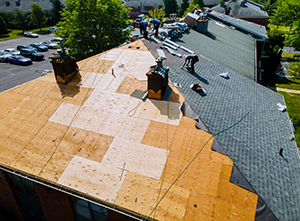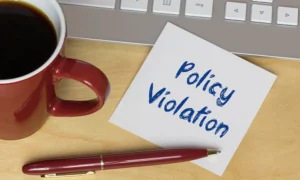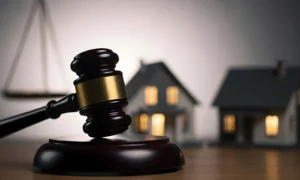The HOA reserve funds play an integral role in the protection of an association’s finances. These funds cover the cost of unanticipated expenses, major replacements, and even emergencies. Board members should understand how these funds work.
What are HOA Reserve Funds?
A reserve fund is essentially a savings account for a homeowners association. The HOA reserve funds serve as a buffer that protects the community from unplanned costs and necessary repairs over time.
What are Condo Association Reserve Funds?
A condo reserve fund works in much the same way as a homeowners association reserve fund. It is a separate savings account that the COA uses to pay for major repairs, replacements, and emergencies in the future.
The Importance of Reserve Funds for Homeowners Association
Associations would be wise to maintain a reserve fund, even if there is no legal requirement to do so. This is because reserve funds have several benefits.
For one thing, a reserve fund helps avoid special assessments. When an HOA has sufficient reserves, it can draw on this fund instead of levying special assessments in the event of a financial setback.
Another reason to have HOA reserve funds is to protect property values. With properly funded reserves, an HOA can ensure timely maintenance of common areas, preventing property deterioration. This helps maintain curb appeal and increase property values.
If nothing else, a well-funded reserve contributes to the overall financial stability of the association. It signals smart financial decisions and long-term viability. Many buyers and lenders consider an association’s financial condition before pushing through with a sale.
What Can HOA Reserve Funds be Used For?
In general, reserve funds are used for the major replacements, repairs, and maintenance of the association’s assets. When an asset deteriorates to the point where it requires large-scale maintenance or replacement, an HOA can draw on its reserves to cover the costs.
Although associations can also use reserves to cover unplanned expenses, most use them for expected repairs or replacements. Because these costs are expected, the association can start setting aside reserve contributions early on.
For example, if the clubhouse will require a $30,000 roof replacement in 5 years, the association will need to save up $6,000 per year. This extra $6,000 is divided among all homeowners and included in the calculation of HOA fees. This way, by the time the replacement is needed, the HOA would have enough money to cover the cost.
Spreading the contributions over many years is more favorable than collecting a big lump sum. After all, $6,000 per year is more manageable for homeowners than $30,000 in one go.
It is worth noting that state laws and the association’s governing documents can influence what reserves can be used for. Board members should check with their HOA attorney for confirmation.
HOA Reserve Account vs Operating Account
There are two main accounts homeowners associations typically have: the operating account and the reserve account.
The operating account is used to cover day-to-day expenses. These are expenses that happen regularly. Examples include insurance premiums, management fees, cleaning costs, and even office supplies.
On the other hand, the reserve account is used to cover large-scale maintenance, repairs, and replacements. These are expenses that occur infrequently. Examples include roof replacements, pool retiling, and parking lot repaving.
Is HOA Reserve Funding Required?
Whether or not an HOA is required to maintain reserves depends on state laws and the governing documents. Board members should be familiar with their state’s HOA reserve fund laws to ensure compliance.
In Maryland, condominium associations are required to maintain a reserve fund and conduct a reserve study. In Virginia, there is no statutory requirement to fund reserves. That said, Virginia law does require condo associations to conduct reserve studies.
In addition to state laws, the governing documents may also stipulate HOA reserve requirements. These can cover notice requirements, reporting requirements, and deposit requirements.
How are HOA Reserves Funded?
An HOA funds its reserves through contributions from homeowners. This contribution is typically mandatory and included in the association’s regular fees. If an association has severely underfunded reserves, it might levy special assessments as an additional HOA reserve contribution.
How Much Should an HOA Have in Reserves?
Ideally, an association would have a fully funded reserve account. This means that the association has met 100% of its total reserve needs and can cover the cost of all expected repairs or replacements as outlined in the reserve study.
This is not always feasible. Most associations struggle to maintain 100% funding reserves. That said, the HOA’s rule of thumb is to maintain a funding level of at least 70% at any given time.
There is no universal dollar amount that an association should have in its reserves. The right level of funding can vary greatly depending on the association’s needs, condition, and reserve study.
A reserve study analyzes the association’s current financial health and the condition of its major assets. From there, the reserve study professional will develop a funding plan, which will dictate how much the association should deposit into its reserves each year.
Boards can then use this reserve study as a basis for their computations. For example, if the study recommends saving $20,000 per year and the association has 200 homeowners, it must charge an additional $100 per homeowner per year in contributions.
Consequences of Underfunded HOA Reserves
Homeowners association reserves are essential to the long-term success of any community. When an association’s reserves are underfunded, it can jeopardize both financial and physical assets.
Without adequate reserves, an association would have no means of covering major costs. This would force the association to levy special assessments, take out a large loan, or defer maintenance. None of these options is favorable to the community.
Special assessments are often disliked by homeowners, especially when they are issued on short notice and are quite expensive. Loans are suitable for immediate cash injections, but they come with interest. Finally, delaying maintenance might cause further damage, affecting both curb appeal and property values.
A Wise Decision
Homeowners associations rely significantly on their savings, yet many still don’t have properly maintained reserves. Even without a statutory requirement, boards would be smart to incorporate HOA reserve funds into their financial plan.
Keymont Community Management provides expert reserve planning services to associations in Virginia, Maryland, and the Washington, D.C. area. Call us today at 703.752.8300 or contact us online to get started!
RELATED ARTICLES:
- Understanding HOA Fees: What Are Homeowners Paying For?
- HOA Board Of Directors: Roles, Duties, And Fiduciary Responsibilities
- Roberts Rules of Order Cheat Sheet



